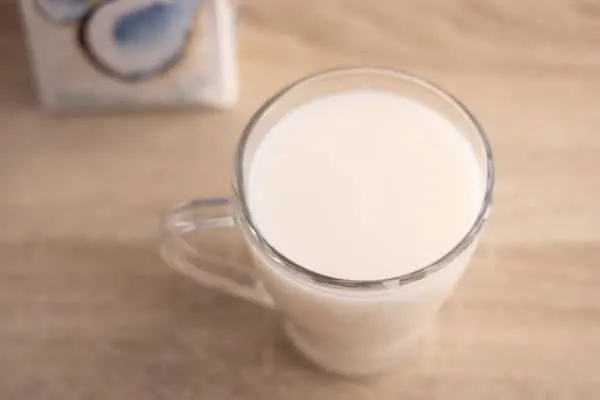Coconut milk is an incredibly versatile cooking and baking ingredient which can add creaminess and sweetness to a dish without dairy.
Of course, if that recipe only requires half a can or carton, what can you do with the rest (not to mention the unopened can in your pantry)? Can coconut milk go bad?

How is Coconut Milk Made?
There are several different varieties of coconut milk on the market, but all produced by grating the white “meat” of the coconut, and then squeezing or pressing the grated coconut meat to extract the milk.
For thick coconut milk, no additional liquid is added. But for thinner coconut milks, the grated meat is soaked in water before being squeezed.
Thicker coconut milk is most often used in culinary applications – many soup and sauce recipes require coconut milk in the base, as do plenty of delicious desserts. It’s very high in fat, and almost always packaged in cans.
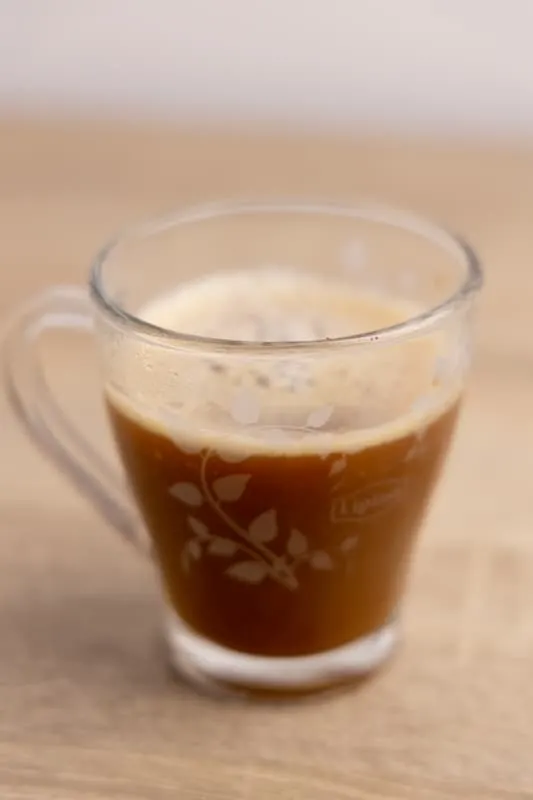
Thinner coconut milks that have had a lot of water added to them are most often used as a milk substitute by vegans, and those with dairy allergies.
These coconut milks are often packaged in aseptic, shelf-stable containers, though there are some brands of refrigerated coconut milk available.
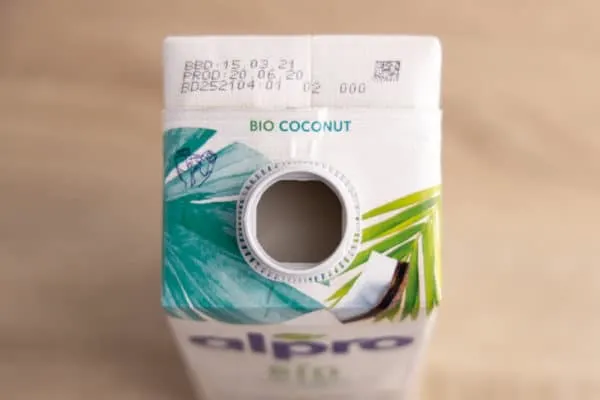
Can Coconut Milk Go Bad?
Like all nondairy milk products, coconut milk can in fact go bad. The shelf life of coconut milk depends on the type of milk (thick, or thin), and the packaging. Unopened coconut milk that is canned, will have a shelf life of two to five years, when properly stored.
Coconut milk that is in aseptic packaging has a shelf life of between six and twelve months, and can last for up to a month after the printed expiration date when sealed and properly stored.
Finally, coconut milk that is sold in the refrigerated section and is not in aseptic packaging should be consumed within a week of the expiration date.
Once any type of coconut milk has been opened, it will begin to spoil. Thicker coconut milks will stay good for seven to ten days in the refrigerator, while thinner milks will spoil in about seven days. Be sure to check coconut milk for freshness before using or consuming it.
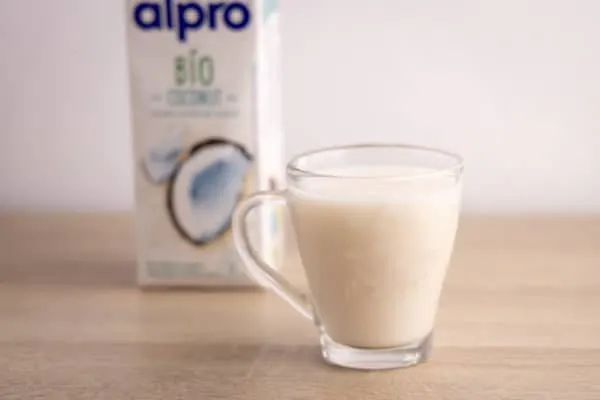
Signs that Coconut Milk Has Gone Bad
Mold is a strong indicator that coconut milk has spoiled. If there are any signs of mold or a film on the surface, the coconut milk should not be consumed.
Similarly, if the milk appears chunky, darkens in color, or starts to curdle, it has gone bad and should be discarded.
Smell is another good indicator of whether or not coconut milk has spoiled. If the milk smells sour, or rancid, then it should not be consumed.
If the container appears at all swollen or bulging, that is a sure sign that the coconut milk has spoiled, and the container should be discarded. The same applies to oat, soy, and almond milk.
Separation of thick coconut milk is completely normal, and is not a sign that the milk has gone bad. Often, the fat will float to the top of the can, and the more watery liquid will sink. Shaking the unopened can, or stirring an opened one, can re-mix the coconut milk.
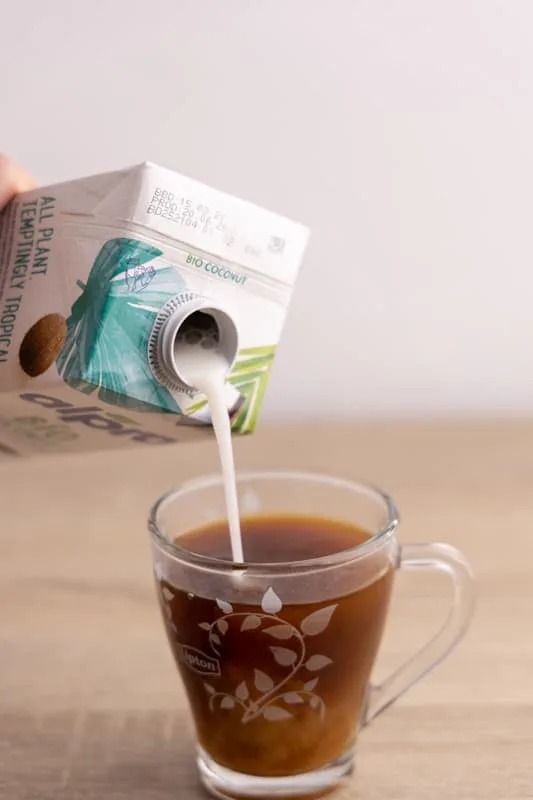
Storing Coconut Milk
Unopened, shelf stable or canned coconut milk should be stored in a cool, dark place free from heat or humidity. Once opened, the coconut milk should be stored in an airtight container in the refrigerator.
Freezing a whole container of unopened coconut milk is not recommended, as this will not dramatically increase the shelf life. Freezing leftover opened coconut milk will extend its life to six months.
Coconut milk should be frozen in an airtight container, and can be thawed in the refrigerator overnight. Try freezing coconut milk in ice cube trays to add some creaminess to your smoothies!
